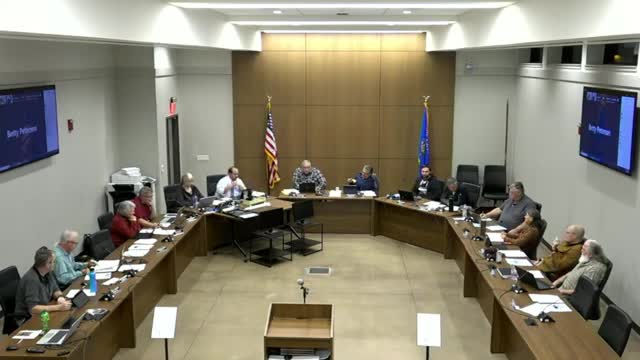County Board Moves Forward with Controversial Short Term Rental Ordinance
October 18, 2024 | Sawyer County, Wisconsin
This article was created by AI summarizing key points discussed. AI makes mistakes, so for full details and context, please refer to the video of the full meeting. Please report any errors so we can fix them. Report an error »

In a recent government meeting, the Surry County Board discussed the proposed Tourist Rooming House (TRH) ordinance, which has been under consideration for over a year by an ad hoc committee. The ordinance aims to regulate short-term rentals, addressing concerns related to public health and safety, particularly regarding occupancy limits and septic system compliance.
The Human Services Board reviewed the ordinance in September and forwarded it to the county board without a recommendation for approval. During the meeting, a resolution was introduced to memorialize the Human Services Board's decision, allowing the county board to act on the ordinance.
Key discussions centered around the implications of the ordinance for homeowners and the potential need for additional staffing to enforce the new regulations. Some board members expressed concerns about the financial burden of hiring new employees, especially given the current budget constraints of the Health and Human Services Department. Others argued that the ordinance would provide clarity for homeowners considering short-term rentals, outlining expectations and responsibilities.
Several board members raised questions about the enforcement of the ordinance, particularly regarding the ability of staff to inspect properties. It was clarified that staff would not have the authority to enter homes without permission, ensuring that property rights are respected.
The ordinance's proponents emphasized its importance in maintaining community standards and addressing issues such as overcrowding in rental properties. However, critics voiced concerns about the potential for increased government regulation and the impact on homeowners who rely on rental income.
Ultimately, the board moved to approve the resolution related to the TRH ordinance, setting the stage for further discussions on implementation and potential fee structures to cover enforcement costs. The ordinance reflects a growing trend among local governments to regulate short-term rentals in response to community concerns about their impact on neighborhoods.
The Human Services Board reviewed the ordinance in September and forwarded it to the county board without a recommendation for approval. During the meeting, a resolution was introduced to memorialize the Human Services Board's decision, allowing the county board to act on the ordinance.
Key discussions centered around the implications of the ordinance for homeowners and the potential need for additional staffing to enforce the new regulations. Some board members expressed concerns about the financial burden of hiring new employees, especially given the current budget constraints of the Health and Human Services Department. Others argued that the ordinance would provide clarity for homeowners considering short-term rentals, outlining expectations and responsibilities.
Several board members raised questions about the enforcement of the ordinance, particularly regarding the ability of staff to inspect properties. It was clarified that staff would not have the authority to enter homes without permission, ensuring that property rights are respected.
The ordinance's proponents emphasized its importance in maintaining community standards and addressing issues such as overcrowding in rental properties. However, critics voiced concerns about the potential for increased government regulation and the impact on homeowners who rely on rental income.
Ultimately, the board moved to approve the resolution related to the TRH ordinance, setting the stage for further discussions on implementation and potential fee structures to cover enforcement costs. The ordinance reflects a growing trend among local governments to regulate short-term rentals in response to community concerns about their impact on neighborhoods.
View full meeting
This article is based on a recent meeting—watch the full video and explore the complete transcript for deeper insights into the discussion.
View full meeting
